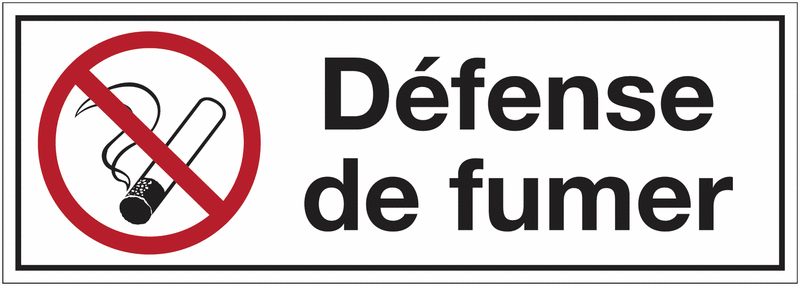|
After covering the Tour de France years ago, while wandering around Paris, we discovered a Starbucks. We were not drawn in by the coffee, but by other attractions – air conditioning, a clean restroom for patrons, and the very visible signs: Défense de Fumer.
Not only was the sign posted, the rule was enforced. The male barista also spoke English – not that we needed it – but it was the lingua franca, you might say, for communicating with visitors who spoke Italian, Spanish, Arabic, Japanese. Tout le monde parle Starbucks. Starbucks had previously made good (if expensive) coffee available in the deprived United States, and more recently it has made comfort available to people walking the streets of great cities in the world. It’s good business: in a chaotic and messy world, Starbucks offers comfort. Since our first trip, a couple of kids in our 20s, we have delighted in all corners of France – the food, the language, the antiquities, the art, the people. We have also had hundreds of meals ruined by strong Gallic cigarettes. Long ago, I learned to ask the proprietor, in French, if there was some little corner where there would be no smoking. The response was generally a Gallic shrug, to go with the Gallic cigarettes. At a nearby table, gallant men would hold their Gauloises far away from their own lady, thereby putting the smoke a foot from my lady. However, in Starbucks, owned and operated by Howard Schultz, American, you could go to the bathroom, you could breathe, you could sip your coffee. Half the patrons of that Parisian Starbucks were French. They, too, loved the ambiance, the comfort. I bring up my little epiphany about Starbucks because Howard Schultz is now making rounds of every television studio in the United States, exploring a run for president in 2020. He is not considering the hurly-burly of the Democrat stampede but is considering running as an independent. With the same rigidity that causes Starbucks to employ nonsense words for “small, medium or large,” Schultz is seeking voters who are sick of the two political parties – well, who isn’t? What is there about extremely rich people that makes them think they know how to govern the clumsy entity called a democracy? I pick up the same arrogance from Michael Bloomberg, who at least has condescended to be a Democrat for the moment. How does Bloomberg govern? The city where he was mayor for three terms currently has mass transit and public housing falling apart. Extremely rich people generally hate to see money distributed differently; they are not exactly Elizabeth Warren or Bernie Sanders. Schultz made his name in Seattle but sold his basketball team to rich people in Oklahoma City. That fact is not lost on the inhabitants of Coffee City, who might prefer to vote for the current governor, Jay Inslee. As for third parties, Americans remember that in 2016 somebody named Jill Stein attracted enough gadflies to help sink Hillary Clinton and elect a fraudulent and illiterate sociopath who claimed to be fabulously rich. Ross Perot. Ralph Nader. John Anderson. George Wallace -- enough to give “independent” a bad name. While Howard Schultz is “exploring,” I just want to tell him: “Pour l'air frais, les toilettes, et moins important, le café: Merci, mec.”
Randolph
2/1/2019 02:42:10 pm
Thanks, once again George!
George Vecsey
2/1/2019 02:57:35 pm
Randy: No fatwas here.
Gene Palumbo
2/1/2019 02:49:37 pm
This is actually a reference to the previous post. I just realized that the comments there on George's piece on Jackie Robinson, didn't include the link. Here you go: https://www.nytimes.com/2019/01/31/sports/baseball-jackie-robinson-integration.html Do check it out. It's very fine.
George Vecsey
2/1/2019 03:02:33 pm
Gene, thanks, I have heard from so many people after that special section on Jackie Robinson yesterday on what would have been his 100th birthday. GV
Hansen Alexander
2/2/2019 04:16:54 pm
A splendid piece of writing, George. Such splendid choice of words, a delightful look backs at days you and Marianne spent in Paris. Thank you.
Ed Martin
2/3/2019 02:09:37 pm
Georges, years ago Peggy and I were driving through central France and found a small hotel, restaurant in a rural village. As we sat in the dining room, Peggy, exercising our limited French, inquired about “Le salle de Bain.” The proprietor answered gently, “Does Madame wish to take a bath? Evidently, not the vernacular use at that time and place. Just saying....
George Vecsey
2/4/2019 08:44:27 am
Ed, quite right, my post was a classic example of garbage-in, garbage-out. I always consult Google Translate when I am being pretentious. I haven't been in France in a while, and being rusty, I asked Google Translate to confirm "bath room" and of course it did. I should have asked for the word for "toilet." And if I were casually asking in a public place, I might ask, "Ou est le vece, svp?" (accents not possible on this format.) Short for Double Ve Ce. or from the English Water Closet, but you know that. Thanks for pointing that out. In fact, I may fix it in the body of the essay. Please excuse my faux pas. GV
George Vecsey
2/4/2019 08:49:56 am
Hansen, thank you for the compliment. Turns out I committed a gaffe, wrong word for "toilet." Classic over-reaching. We did live there -- April with our kids decades ago, in a flat in Neuilly, and in a lovely rented top-floor flat in a quiet section of the 8th during the World Cup in 1998, commuting to the other cities. Plus a borrowed studio in the 5th in 1982, for a week or two. A deep love for the most varied and pleasurable country that we know....GV
Ed Martin
2/4/2019 07:51:51 pm
GV, not necessary at all, at all! “Je voudre Le crapper, S’il vous plaits” is my style.
bruce
2/4/2019 08:44:12 pm
george,
George
2/5/2019 07:57:51 am
Bruce: 2002 World Cup. Ginza. I love Japanese food; my wife allergic to soy..Friday Eve. we went to TGIF. Packed. With young Japanese. It was a thing.
bruce
2/5/2019 12:04:59 pm
george,
George Vecsey
2/5/2019 07:43:08 pm
Bruce, 3 weeks in 98 in Almost Heaven, West Nagano. (Olympics)
bruce
2/5/2019 09:13:49 pm
george, Comments are closed.
|
Categories
All
|











